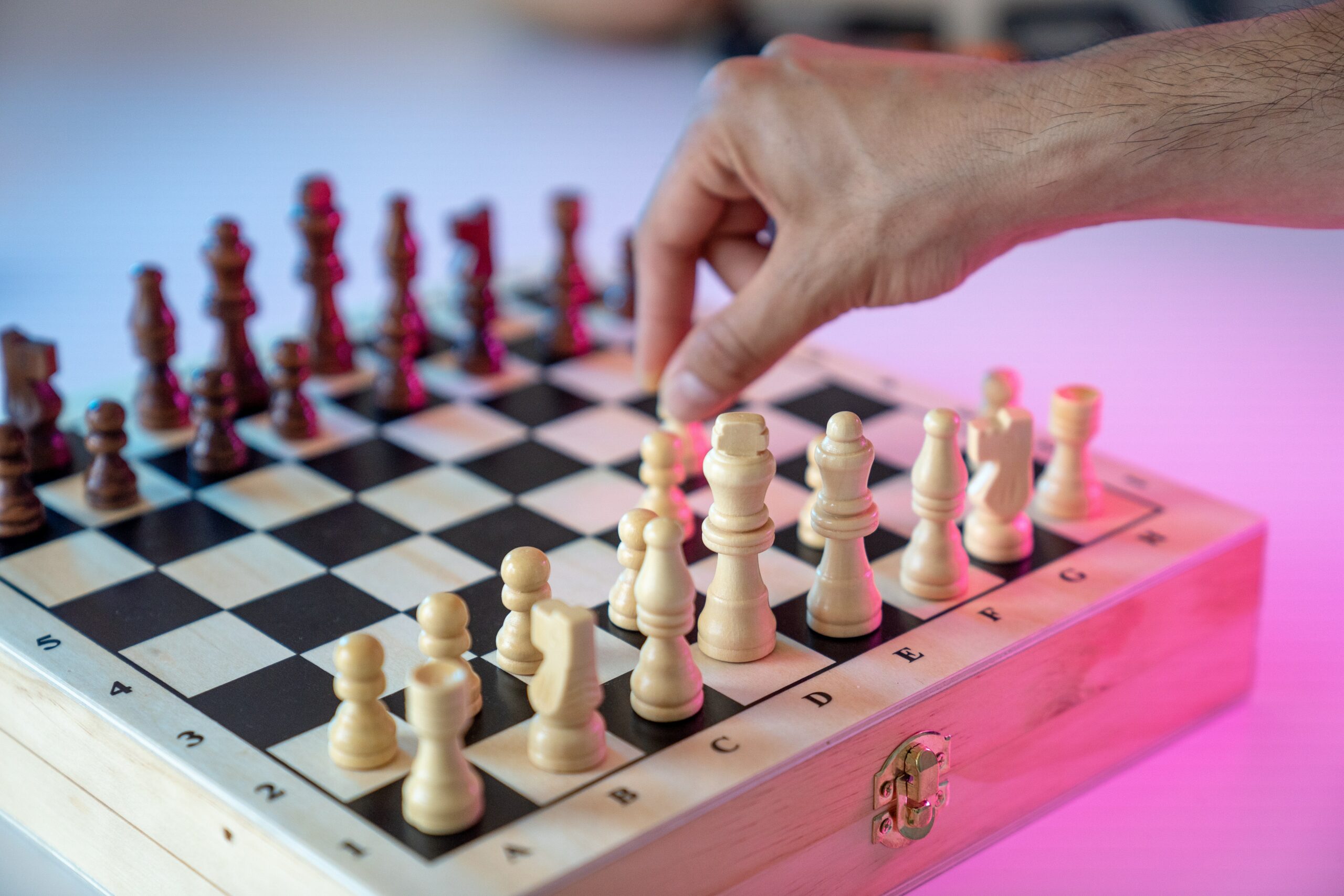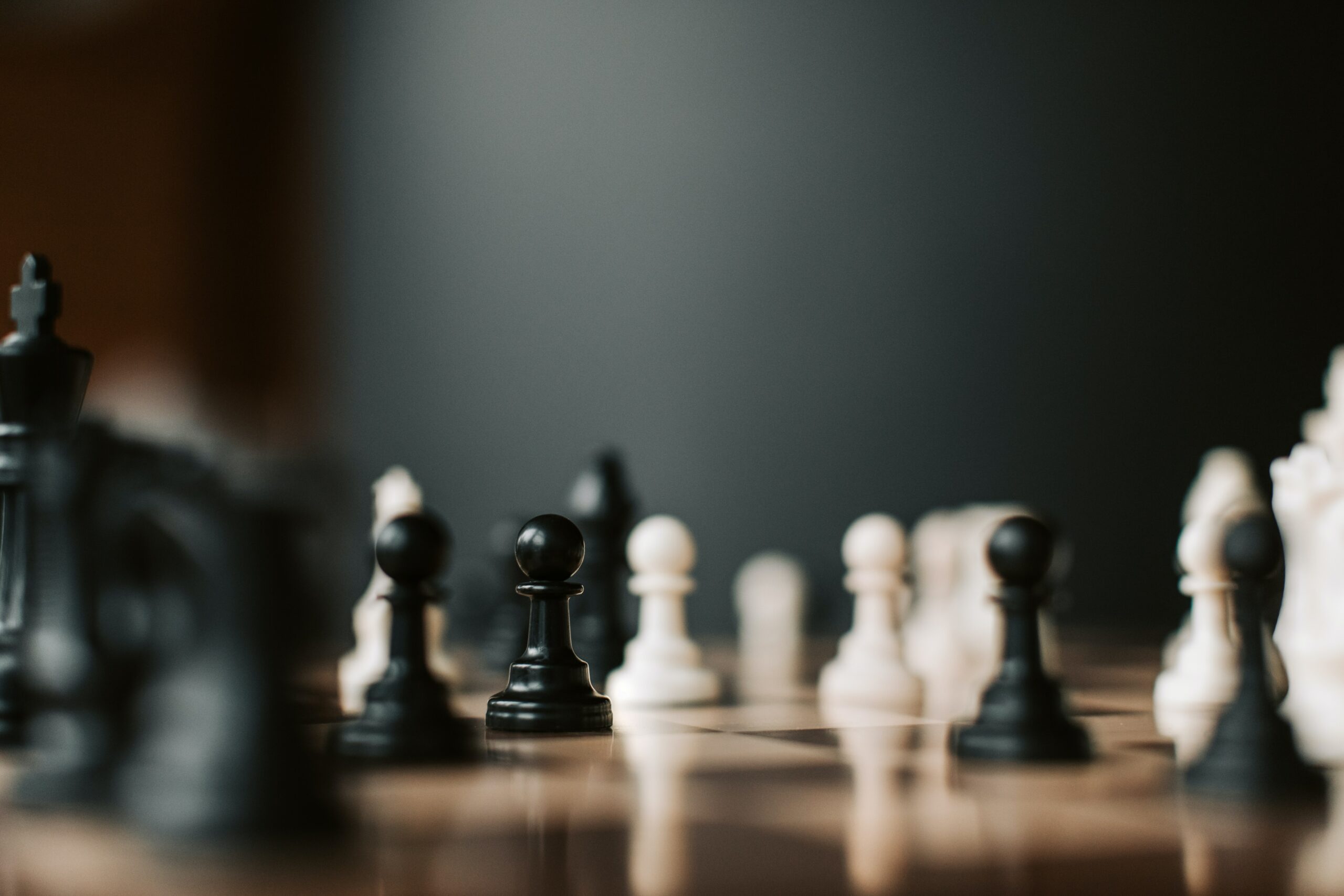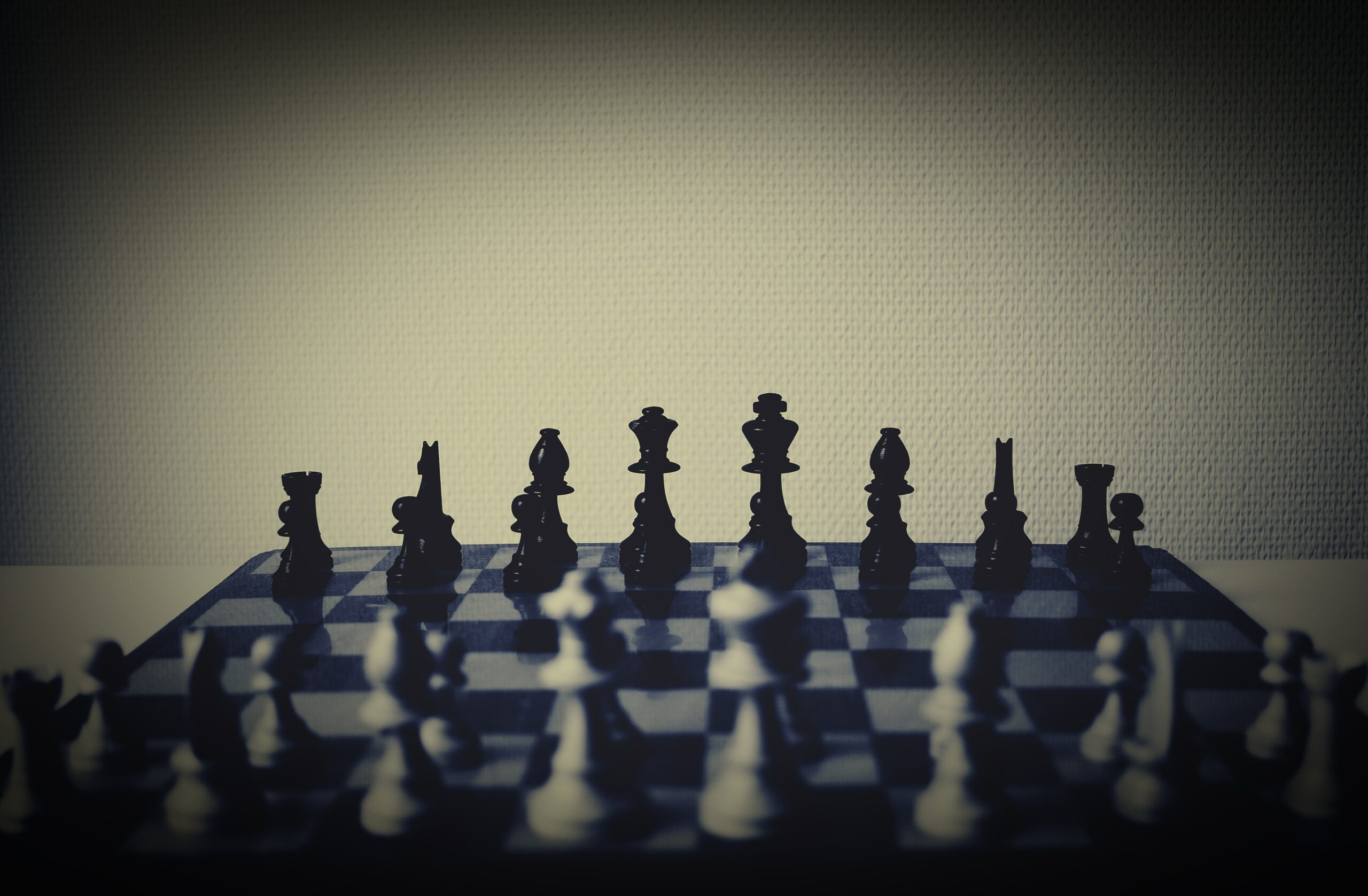Chess, the ancient game of strategy and intellect, has captivated minds for centuries. Whether you’re a complete novice or a casual player looking to level up your game, understanding chess strategies is the key to becoming a formidable opponent.
In this comprehensive guide, we will delve deep into the world of chess strategies, covering fundamental principles, opening strategies, middle-game tactics, endgame techniques, and much more. Get ready to embark on a journey of discovery that will enhance your chess prowess and empower you to outmaneuver your rivals on the board.
What are the fundamental chess strategies every beginner should know?
As a young chess enthusiast, learning the basics of strategy is crucial. Understanding how each piece moves and the value it holds on the board lays the foundation for developing your strategic thinking. The pawn, the smallest yet most numerous piece, acts as the front line of your army, controlling the center of the board and creating opportunities for your other pieces to advance.
The knights, with their unique L-shaped movements, possess the ability to leap over other pieces, making them valuable for surprise attacks and defense. Bishops, on the other hand, glide along diagonals, dominating the board when positioned correctly.
Rooks are the powerhouses, moving in straight lines to control files and ranks, while the queen, the most versatile and powerful piece, combines the abilities of the bishop and the rook, dominating the board with ease.
How can understanding the opening principles improve your strategy?

The opening phase of a chess game sets the stage for the middle game and the end game. Adhering to opening principles can establish a solid foundation for your pieces, enabling quicker development and improved control of the board.
These principles include controlling the center, developing your minor pieces (knights and bishops) early, and ensuring your king’s safety through castling. Familiarize yourself with common openings like the Italian Game, the Spanish Opening (Ruy Lopez), and the Queen’s Gambit to gain a strategic edge from the very beginning.
Which strategic concepts should you focus on in the middle game?
The middle game is where the true battle unfolds. This phase requires adaptability and foresight as you strive to optimize your position and seize the initiative.
Focus on mobilizing your pieces efficiently, creating pawn structures that support your strategy, and identifying weaknesses in your opponent’s position to exploit them. Keep a keen eye on the center of the board, as controlling this critical area can lead to a powerful attack or a solid defense.
How do chess strategies differ from chess tactics?
While strategies refer to the overall plans you devise during the course of the game, tactics are the specific moves and combinations you use to achieve your strategic goals. Tactics often involve sacrifices, where you willingly give up a piece to gain positional advantage or set up a checkmate.
Tactics can be straightforward, like forks and pins, or more advanced, such as discovered attacks and double threats.
| Aspect | Chess Strategies | Chess Tactics |
|---|---|---|
| Definition | Long-term plans and overall approach to the game. | Short-term calculations and specific moves for immediate gains. |
| Focus | Positional understanding and control of key areas of the board. | Exploiting tactical motifs to gain material advantages or deliver decisive blows. |
| Timeframe | Long-term planning for the course of the game. | Immediate calculations for specific moves and combinations. |
| Objective | Formulating a strategic plan to achieve specific goals. | Gaining a material advantage or delivering checkmate. |
| Execution | Requires patience, deep thinking, and evaluation of positional factors. | Demands sharp calculation, visualization, and spotting tactical opportunities. |
How can you effectively utilize pawn structures to strengthen your position?
Pawns might be the smallest pieces, but they play a significant role in chess strategy. Understanding pawn structures can help you gain a positional advantage and open up lines for your pieces.
Doubled pawns, where two pawns of the same color are stacked vertically, can be a weakness if not compensated by other pieces. Passed pawns, on the other hand, are advanced pawns that have no opposing pawns on their path, making them formidable forces in the endgame.
What are the key elements of an attacking chess strategy?
An attacking chess strategy involves a combination of key elements that aim to put your opponent under pressure and create favorable positions on the board. The key elements of an attacking strategy include active piece placement, open lines, and threats.
Open lines refer to files and diagonals that are unobstructed, allowing your pieces to penetrate the opponent’s territory and apply pressure. Threats play a crucial role in keeping your opponent on the defensive, forcing them to constantly react and make defensive moves.
Sacrifices, tactical combinations, and effective piece coordination are also integral to an attacking strategy. However, it is important to note that attacking should be done with caution and calculation, considering potential counterplay and maintaining a solid position.
How do you develop a solid defensive strategy in chess?

Defense is equally important as offense in chess. A solid defensive strategy involves creating a fortress around your king, anticipating your opponent’s plans, and neutralizing their threats.
Maintain harmonious coordination between your pieces, prioritize piece exchanges when it benefits your position, and be vigilant about potential weaknesses in your camp. Remember, a well-executed defense can provide opportunities for counterattacks and turn the tide of the game in your favor.
How can you use endgame strategies to secure victory?
Endgame strategies play a pivotal role in determining the outcome of a chess game. The endgame, the final phase of the game where there are fewer pieces on the board, requires a different approach compared to the opening and middle games.
To secure victory, it is crucial to focus on certain key elements of endgame play. One of the primary objectives is promoting pawns, advancing them to the last rank to transform them into more powerful pieces.
Activating the king by bringing it closer to the center of the board helps in supporting the pawns and participating in the action. Creating passed pawns, pawns that have no opposing pawns blocking their path, can significantly strengthen your position and provide a decisive advantage.
Additionally, understanding various endgame positions and the corresponding winning techniques, such as king and pawn endgames or rook endgames, equips you with the knowledge to navigate through complex scenarios and convert your advantages into a victorious outcome.
What are the best resources to learn and study chess strategies?
The digital age has made learning chess strategies more accessible than ever. Online platforms offer a wealth of resources, including video tutorials, interactive puzzles, and chess databases.
Websites like Chess.com, lichess.org, and chess24.com provide comprehensive learning materials suitable for beginners and advanced players alike. Additionally, books by renowned chess authors like Garry Kasparov, Anatoly Karpov, and Mikhail Tal offer invaluable insights into the minds of grandmasters.
How can you analyze famous chess games to enhance your strategic understanding?
Analyzing famous chess games is a valuable practice that can greatly enhance your strategic understanding and elevate your overall chess skills. Studying the games of renowned players, such as Bobby Fischer, Garry Kasparov, and Magnus Carlsen can gain insights into their thought processes, decision-making, and strategic maneuvers.
Pay attention to the moves played, the plans implemented, and the critical moments where the tide of the game shifted. Analyzing famous games helps you absorb strategic concepts, learn from the masters, and adapt their strategies to your own style of play.
Many websites and chess software provide the opportunity to replay and analyze these games move-by-move, allowing you to immerse yourself in the minds of the greatest chess minds in history.
How does studying different chess openings contribute to your strategic repertoire?

Chess openings are an integral part of your strategic repertoire. Each opening has its own characteristics and plans, allowing you to experiment and find the style that suits you best.
Engage in opening theory, explore different variations, and analyze the games of players known for their expertise in specific openings. Mastering a few openings thoroughly is more beneficial than superficially learning numerous openings.
How do strong players anticipate and counter their opponents’ strategies?
Strong players possess the ability to anticipate their opponent’s plans and adapt their strategies accordingly. They carefully observe the moves played, evaluate the resulting positions, and recognize patterns and recurring ideas. Cultivating your observational skills and positional understanding can develop the intuition to preempt your opponent’s intentions. Additionally, staying alert to tactical opportunities and being flexible in your plans will enable you to counter your opponent’s strategies effectively.
What are some common mistakes to avoid when developing your chess strategy?
When developing your chess strategy, it’s important to be aware of common mistakes that can hinder your progress and impact your game. Some common mistakes to steer clear of include:
-
Overlooking threats: Failing to recognize potential threats from your opponent can leave you vulnerable to tactical strikes and unfavorable positions.
-
Neglecting piece coordination: Poor coordination between your pieces can weaken your position and limit your strategic options. Ensuring that your pieces work together harmoniously is crucial.
-
Ignoring opponent’s plans: Focusing solely on your own plans without considering your opponent’s intentions can lead to missed opportunities and tactical surprises.
-
Tunnel vision: Becoming fixated on a single plan or idea can prevent you from adapting to changing dynamics on the board. Maintain flexibility and be open to adjusting your strategy as the game unfolds.
-
Neglecting the value of pawn structure: Pawns play a vital role in chess strategy. Ignoring their importance and failing to understand pawn structures can result in weaknesses and missed opportunities.
-
Lack of evaluation: Failing to evaluate the consequences of your moves can lead to unfavorable positions and missed tactics. Always analyze the potential outcomes before making a decision.
How can you adapt your strategy to different time controls in chess?
Chess is played at various time controls, ranging from rapid and blitz games to classical time controls. Each time control imposes different constraints and demands a different strategic approach.
In fast-paced games, quick decision-making and reliance on intuition are crucial, while in longer games, thorough analysis and strategic depth become more significant. Adapt your strategy based on time control, striking a balance between intuition and calculation to make the most of the time available.
How can you improve your strategic thinking and decision-making skills in chess?
Improving strategic thinking and decision-making skills in chess requires a combination of study, practice, and self-reflection. Regularly solving tactical puzzles enhances your calculation abilities, while studying famous games and analyzing your own games develops your strategic understanding.
Engaging in over-the-board play, online matches, and tournaments provides practical experience and exposes you to various playing styles. Reflect on your games, identify your strengths and weaknesses, and continue learning from stronger players to continuously elevate your strategic thinking.
Overall
Mastering chess strategies is a lifelong journey that requires dedication, practice, and a thirst for knowledge. By understanding fundamental principles, exploring openings, studying famous games, and honing your tactical skills, you can elevate your chess game to new heights.
Embrace the challenges, learn from your experiences, and immerse yourself in the rich world of chess strategy. As you progress on this captivating path, you’ll discover that chess is not merely a game but an art form that fosters creativity, strategic thinking, and mental agility.




